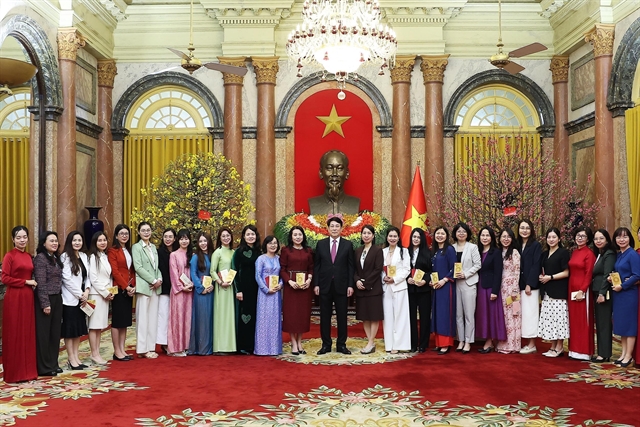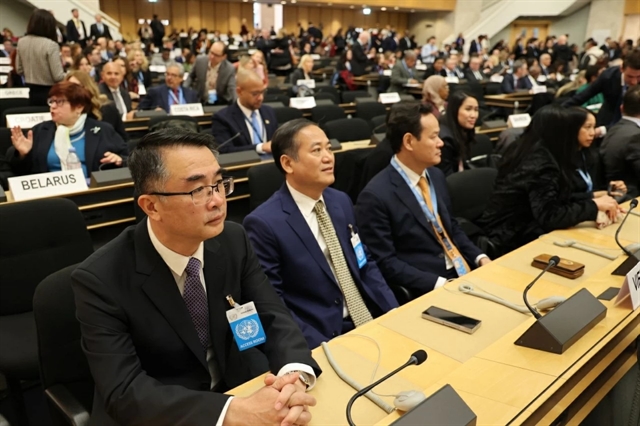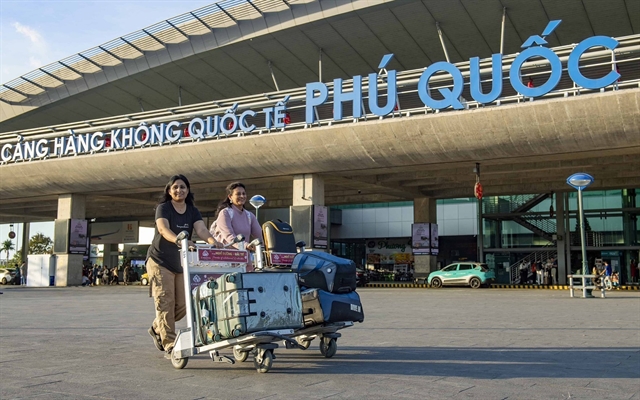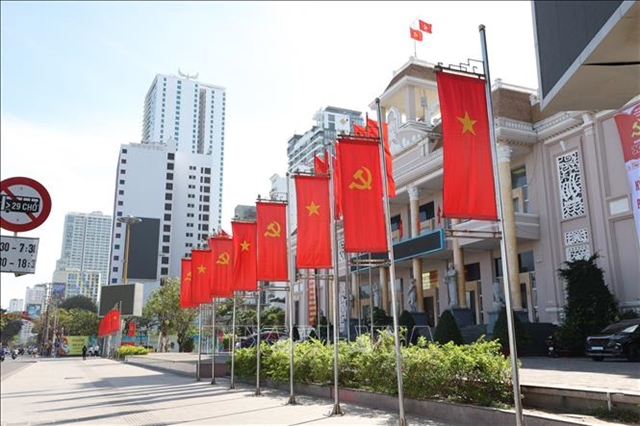 Politics & Law
Politics & Law

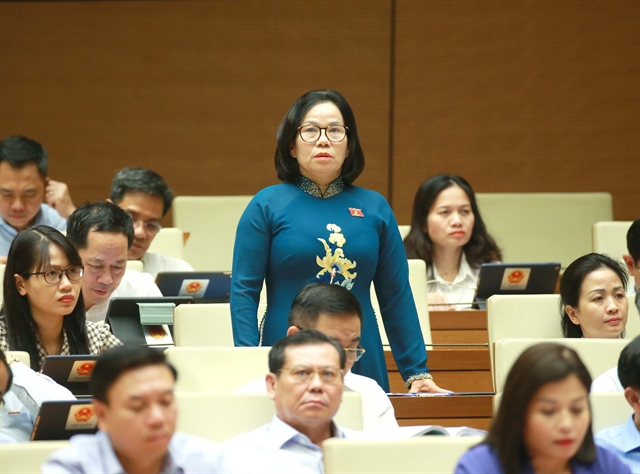
|
HÀ NỘI – The National Assembly (NA) deputies continued their agenda on Thursday, focusing on ways to accelerate the disbursement of public investment funds to meet the goals outlined in the NA's mid-term public investment plan for the 2021-2025 period.
They emphasised several proposed solutions, including enhancing regional connectivity to drive socio-economic development, implementing policies to support the growth of the private sector, and ensuring equitable revenue distribution for local governments.
At the 6th session, NA deputies discussed the implementation of the mid-term public investment plan for the 2021-2025 period, the national financial plan and public debt management for the 2021-2025 period, the State budget execution for 2023, and the State budget estimates and allocation plan for the central budget in 2024.
Deputy Chu Thị Hồng Thái from northern Lạng Sơn Province expressed her agreement with the Government's report and the examination report of the NA Finance and Budget Committee on these issues.
She concurred with the committee's report on measures for the remaining two years, including the proposal that the Government should focus on directing and allocating resources for project preparation and addressing the issue of capital awaiting projects.
Regional development, she also emphasised, was a consistent and overarching policy of the Party, and the north central and northern mountainous regions were considered strategically important areas with vast potential and advantages, but still faced challenges in development.
Although the Government had paid attention to bringing infrastructure development projects to these regions, the connectivity between regions was still weak, she said.
Thái said there needed to be further cooperation between localities. She proposed that the NA and the Government consider upgrading, renovating and expanding National Highway 1B connecting Lạng Sơn and Thái Nguyên provinces in the list of public investment projects for the coming years.
Deputy Khương Thị Mai from northern Nam Định Province emphasised the need to restructure the economy, combining fiscal policies with monetary and other macroeconomic policies to promote private sector development.
She pointed out that currently, 95 per cent of businesses were small and medium-sized enterprises.
To reach the goal of having 1.5 million enterprises by 2025, with 60-70 per cent of them being medium and large enterprises, Mai recommended administrative reform, ensuring a stable business investment environment, enhancing State management efficiency and responsibility of authorised agencies, reviewing and streamlining support policies, and ensuring the feasibility and scale of policies to support business development.
Additionally, she proposed that the Government implement a comprehensive policy to increase the national labour productivity tied to restructuring the economy towards a higher proportion of high-value-added sectors and the adoption of advanced technologies.
Contributing to the discussion, Deputy Nguyễn Trúc Sơn from southern Bến Tre Province assessed that the Government has taken multiple tax and fee reduction measures to stimulate business and production. However, these measures have also affected local governments by reducing their revenue.
The deputy suggested that to compensate for reduced local revenues due to government policies, it was essential to create conditions for localities to generate revenue from other sources to maintain a balance between revenue and expenditure.
For example, he said, provinces in the Mekong Delta or coastal provinces had significant potential for wind energy development, and conditions should be created for these provinces to develop this sector to generate additional revenue.
In the case of 21 southern cities and provinces with significant revenue benefits from lottery activities, this revenue was currently allocated to education, healthcare and rural development, according to Government policies. Sơn proposed that the People's Councils of these localities have the authority to decide on the use of lottery revenue for projects that played a crucial role in local economic development.
In reply to NA deputies, Minister of Finance Hồ Đức Phớc emphasised that the Government has been implementing an expansionary fiscal policy, meaning that in cases of fiscal deficit, tax reductions were carried out while government spending continues to rise.
Over the past three years, the Ministry of Finance has proposed various tax reductions to the Government and the NA, with an estimated reduction of around VNĐ200 trillion (US$8.13 billion) this year. According to the minister, this was a significant effort.
Regarding the budget estimates for 2023, Phớc said as of October 30, tax revenues have reached 85 per cent. In response to some deputies' suggestions regarding increasing revenues from land taxes, the minister mentioned that revenues from land taxes and crude oil were relatively small. The bulk of tax revenues came from production and business activities, especially domestic tax revenues.
Concerning the issue of public investment disbursement, the minister stated that as of now, the disbursement has reached 57 per cent according to the Prime Minister's decision, but it was only 52 per cent when considering both the Prime Minister's decision and those of local authorities. He proposed that amending the Public Investment Law was necessary to address the obstacles in public investment disbursement. – VNS


